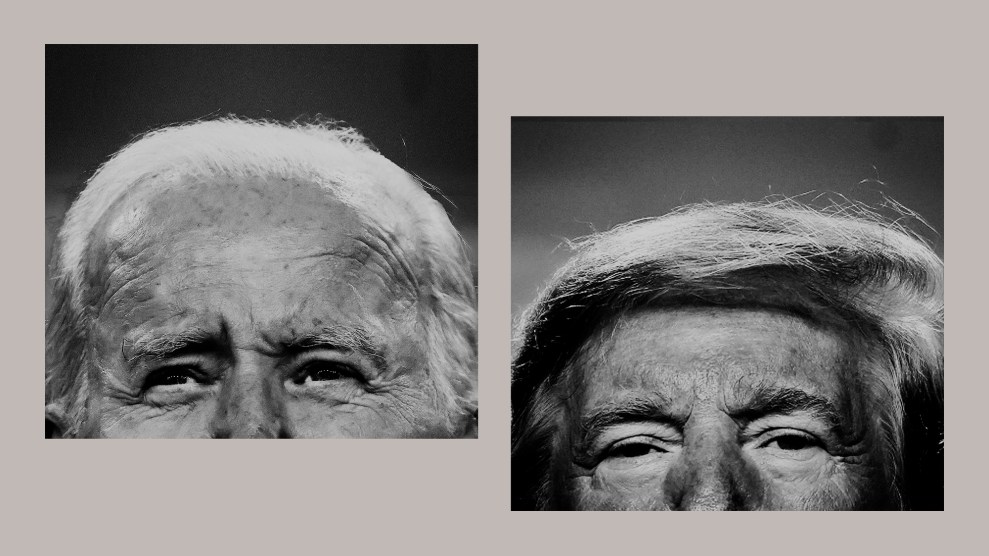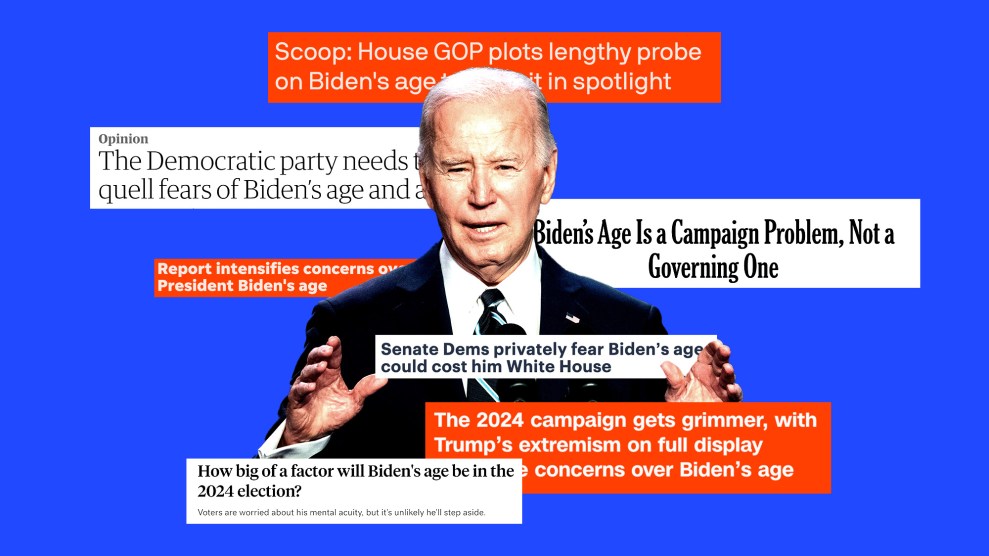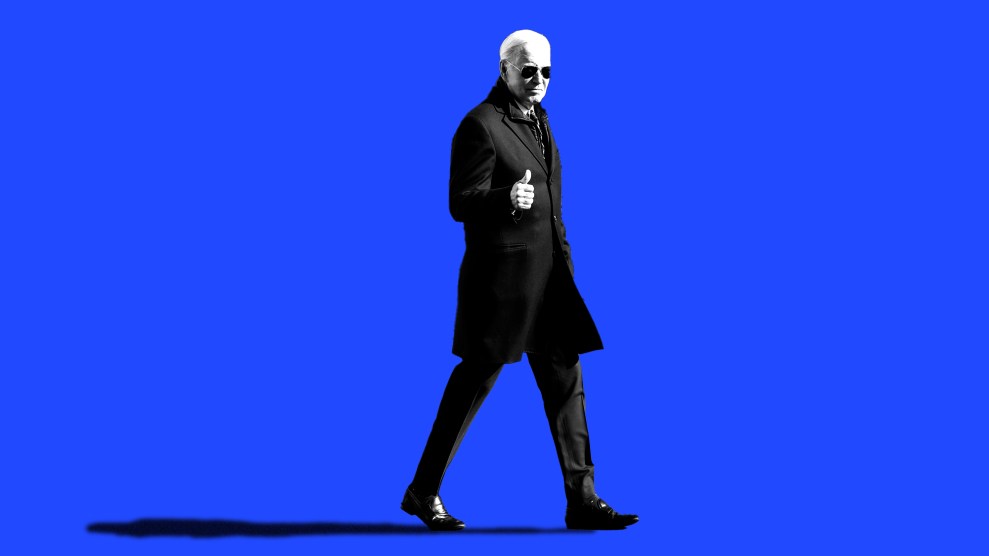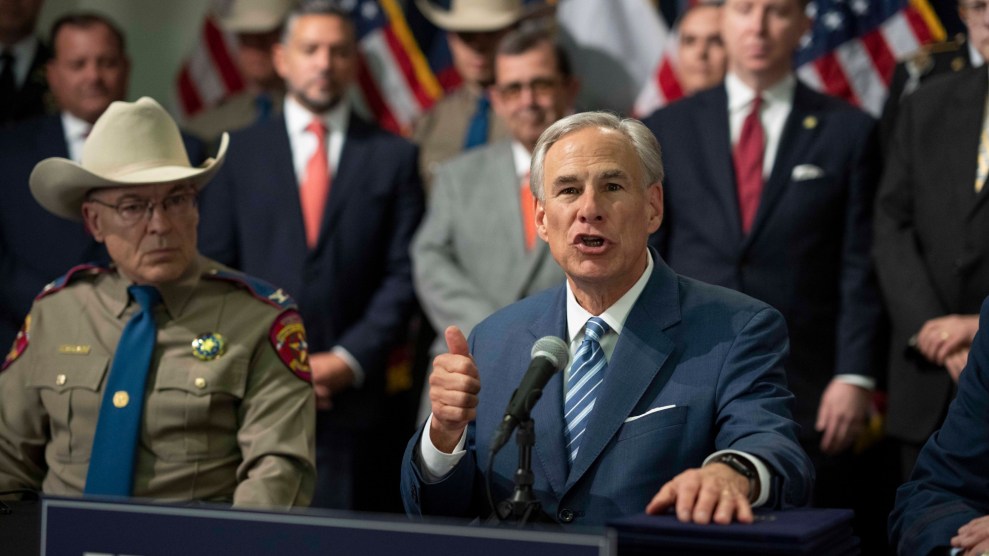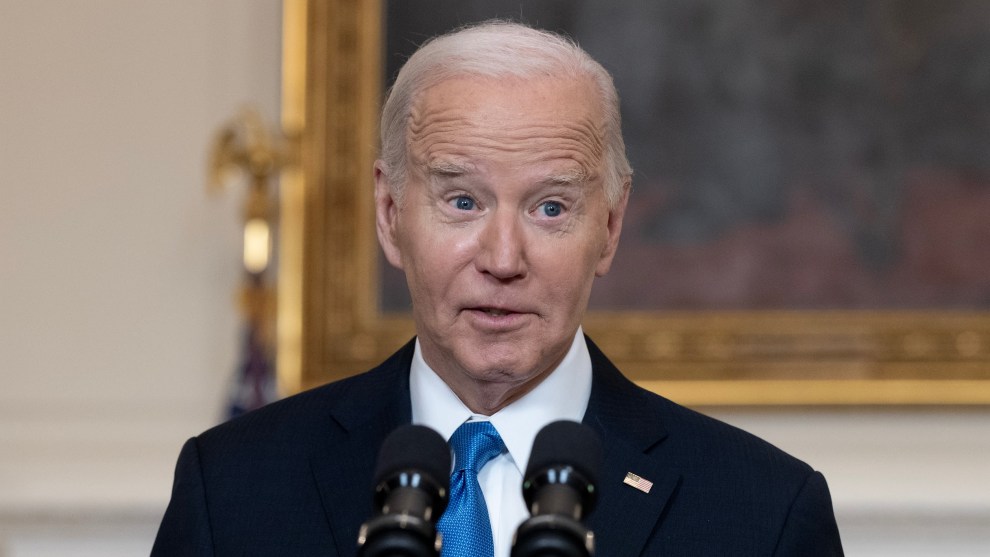
With polls showing voters' concerns over Biden's age, there are growing calls for him to prove his mental fitness ahead of a rematch with Trump.Michael Reynolds/EFE/ZUMA
The daughter of the once-oldest president, Ronald Reagan, who was 77 when he took office, thinks cognitive tests for presidential candidates would be “a good idea,” she said in an interview that aired Sunday.
“Just what we know about what age can do, it doesn’t always do that, but it would probably be a good idea,” Patti Davis said on NBC’s Meet the Press, in response to a question from host Kristen Welker about whether she agreed with the prospect.
WATCH: When Ronald Reagan was elected at 69, he was the oldest person ever to be elected president.
Now his daughter, Patti Davis, says cognitive tests would be a “good idea.”
Davis: “My father was 77 when he left office after two terms. It seems so young now, doesn't it?” pic.twitter.com/wZO5KqO3Jd
— Meet the Press (@MeetThePress) February 18, 2024
Reagan was elected in 1980, when he was 69-years-old; by the end of his second term, in 1989, he was 77-years-old. (He announced his Alzheimer’s diagnosis five years later, though his son, Ron, later alleged his father began suffering the effects a decade earlier, while campaigning for his second term.)
“It seems so young now, doesn’t it?” said Davis, who has written that she has never been a Republican and has heavily criticized Trump.
Indeed, Reagan has since been surpassed as the oldest president by the two frontrunners for the next election—the current and previous presidents. Trump was 70 when he was elected in 2016, and Biden was 78 when he took office. They’re now 77 and 81, respectively. Their advanced ages have led to calls for cognitive tests—notably, from Trump’s GOP rival and former United Nations Ambassador Nikki Haley, who launched her campaign last year by calling for “mandatory mental competency tests for politicians over 75 years old.”
The combination of Trump’s lead over Biden in several polls, other polls showing voters concerns about Biden’s age and health, and Special Counsel Robert Hur’s report issued earlier this month that described Biden as “a sympathetic, well-meaning, elderly man with a poor memory,” the issue of the president’s age has taken center stage. Trump, of course, has made his own notable gaffes, including confusing Haley with former House Speaker Nancy Pelosi. But as the New York Times posited in a recent report, Trump isn’t held to the same standard of professionalism and competence by many voters as Biden is, which may be why Biden’s flubs are more of a concern for voters.
On Friday, Times columnist Ezra Klein—who has spoken out in defense of Biden in the past—published a column urging Biden to drop out, writing that “his age is slowing him” in his re-election campaign and proposing that Democrats could pick an alternative nominee at their convention.
“Retirement can be, often is, a trauma,” Klein wrote. “But losing to Donald Trump would be far worse.”
This underscores a point my colleague David Corn wrote about last week: that if concerns about Biden’s age are “prioritized in the press above the threat that Trump poses to American democracy (and sensationalized), the national debate is warped and the republic imperiled.” David wrote about how “breathless coverage” by the press of concerns about Biden’s age have obscured the importance of making sure Trump isn’t re-elected.
As David wrote:
In a way, it is indeed absurd to have such a conversation about Biden’s slips (if that’s all they are) when the presumptive GOP nominee represents a clear and present danger. But if the most important task at hand is to prevent a Trump restoration, should the mission for Democrats and progressives be to promote Biden as best they can (while highlighting the Trump threat) or find a way to field a new guy or gal? The first choice means figuring out how to overcome swing voters’ possible worries about Biden’s abilities. (And the Biden campaign and the party ought to try to accurately evaluate how deep these concerns are.) The second choice would require Biden’s assent and, if granted, could spark political chaos.
In short, there’s no easy answer. But a cognitive test — which White House Press Secretary Karine Jean-Pierre recently said will not be included in Biden’s upcoming physical — for both Biden and Trump could show voters where their mental capacities stand. And that might be our best bet for preserving democracy.

